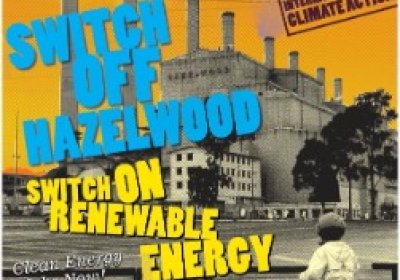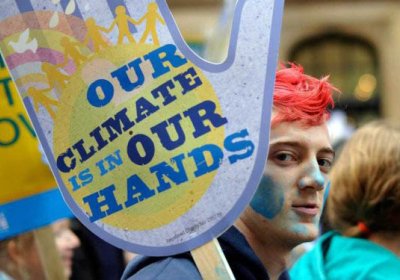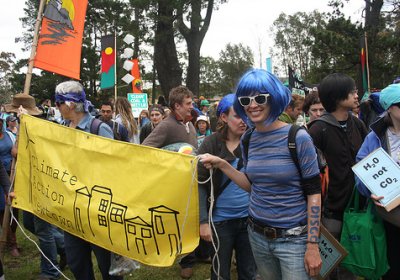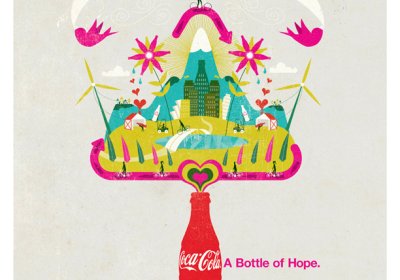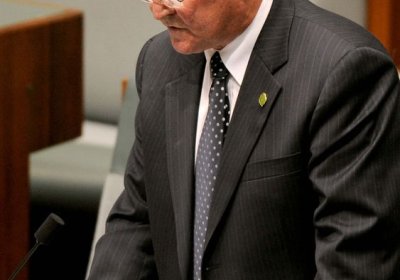Green Left Weekly’s Simon Butler asked five Australian climate activists for their thoughts on the current state of the movement. Phillip Sutton is the convenor of Melbourne’s Climate Emergency Network and co-author of the 2008 book Climate Code Red. Adam Lucas is coordinator of Beyond Zero Emissions Sydney and lectures in the Science and Technology Studies Program at the University of Wollongong.
Climate change
On October 10, climate activists will converge on the Hazelwood power station in the Latrobe Valley in eastern Victoria. They will use mirrors to try to create Victoria's “first solar thermal power” station at the Hazelwood gate, to show solar is a viable alternative.
Shaun Murray from campaign group Switch off Hazelwood told Green Left Weekly: “Hazelwood is the most carbon-intensive power station in Australia relative to its output, and has been an ongoing target by climate campaigners.”
For five centuries, Africa has suffered at the hands of the West. Starting with the slave trade, through the colonial era, to today’s neoliberal global economy, the development of industrial capitalism in the West has come at a terrible price paid by Africans.
Food riots in Mozambique early this month and looming mass starvation in Niger after floods that were preceded by years of drought both reflect the ongoing economic exploitation.
However, they also reflect another creation of the industrialised West adversely affecting Africa: climate change.
The Australian logging industry is seeking to cash in on a global surge in markets for forest biomass and wood-fired power.
Proposals for new wood-burning power stations are popping up around the globe. The US alone has 102 new wood-fired power stations planned, the October 25, 2009 Independent said.
Not long ago, a lot of socialists around the world had little to say about environmental issues. The environmental movement was focused on individual (change your light bulbs) and capitalist (create a market for emissions) solutions to the ecological crisis.
In 2007, immediately after the founding of the Ecosocialist International Network (EIN), I wrote a Canadian Dimension article on the challenges facing ecosocialists.
In it, I discussed two trends that seemed to indicate a new wave of anti-capitalist and pro-ecology action:
Thankfully, no lives were lost in the September 5 earthquake that hit the city of Christchurch, New Zealand. But it has caused vast damage, up to half the buildings in the region need repairing.
As I watched the evening news report about the disaster, I was struck by a comment a local resident made to reporters. Half jokingly, he said the good news was that the rebuilding effort would help pull New Zealand out of recession.
One of Australia’s biggest carbon emitters, Bayswater coal-fired power station in the Hunter Valley of NSW, will be the target of this year’s Camp for Climate Action.
Over December 1-5, the camp will bring people from around the country to a site near Bayswater, and will culminate in a mass protest against the proposed expansion of the power station.
The Copenhagen City Court ruled on September 2 that climate activists Natasha Verco, a 32-year-old activist from Australia, and Noah Weiss, a US student, were innocent of the charges against them.
The two climate activists had been charged for organising “illegal activities” during the United Nations climate summit in Copenhagen in December 2009. Verco and Weiss had been accused of planning violence against police, disturbance of public order and vandalism.
The charges could have lead to several years of prison and deportation. But the charges didn’t stand up in court.
The scientific community has never been more united in its conviction that climate change is well on the way to rendering planet Earth a vastly less hospitable place for most species, including our own. Yet doubt about the gravity of the problem is, paradoxically, on the rise.
Recent polls in the US, Britain and Canada reveal that fewer people take the threat of climate change seriously than five years ago.
Voters’ stunning rejection of both major parties has left neither likely to form a government in its own right. Whichever party governs, it will have to rely on the support of at least three and probably four independents, with Andrew Wilkie's chance of taking Denison from Labor firming.
Dick Smith’s Population Puzzle, a documentary that aired on ABC1 on August 12, made no modest claims. It went for the direct, hard sell. Its message: “Cutting immigration to Australia is a great product, and you should buy it.”
It said a smaller Australia would not solve just one or two social problems, but more than a dozen.
BRISBANE — Several hundred farmers from the Darling Downs and environmentalists rallied outside State Parliament on August 4 to protest the expansion of the coal and coal seam gas industries in rural Queensland. The rally was sponsored by Friends of the Earth, Save Our Darling Downs, Community Climate Network Queensland, Friends of Felton and the Queensland Conservation Council.
- Previous page
- Page 12
- Next page

